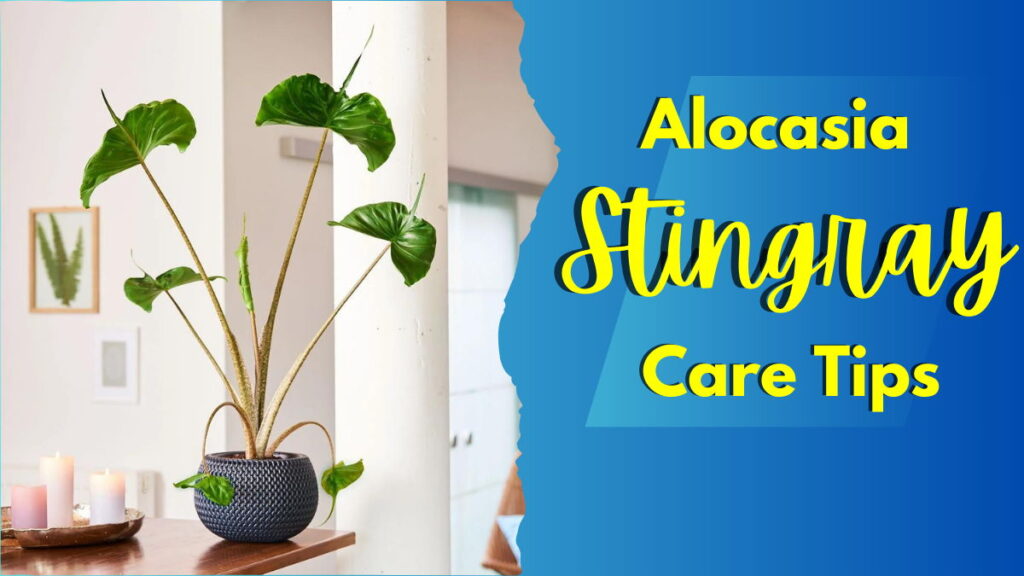
This article gives a comprehensive guide on “Alocasia Stingray Care” to learn about caring for and planting these wonderful Alocasia species. The Alocasia stingray, with its attractive narrow leaves that resemble a stingray tree, is a treasure for every plant lover.
Stingray Plant originates in Southeast Asia and belongs to the Araceae family. Its beautiful leaves have distinctive and shiny veins, like smooth stingray skin.
Alocasia Stingray Care Tips
Lighting Requirements
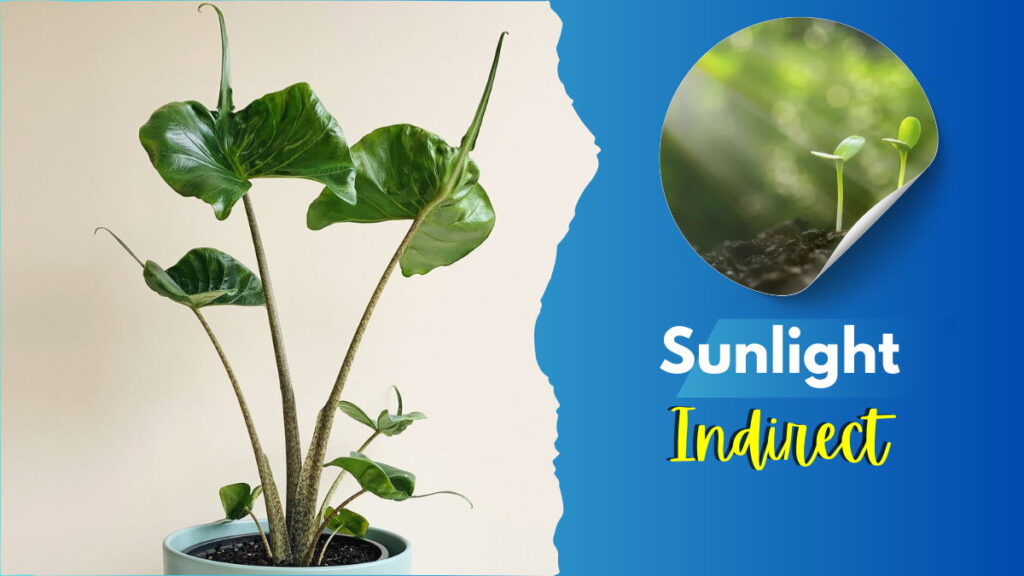
Stingray Alocasia grows in bright indirect or backhanded sunlight. Avoid bright direct light that can harm the leaves.
Temperature & Humidity
Maintain the temperature at 65-75°F (18-24°C) with moderate to high humidity ( maximum about 70%). Prefer to use a humidifier or pebble tray to increase moisture.
Soil and potting mix
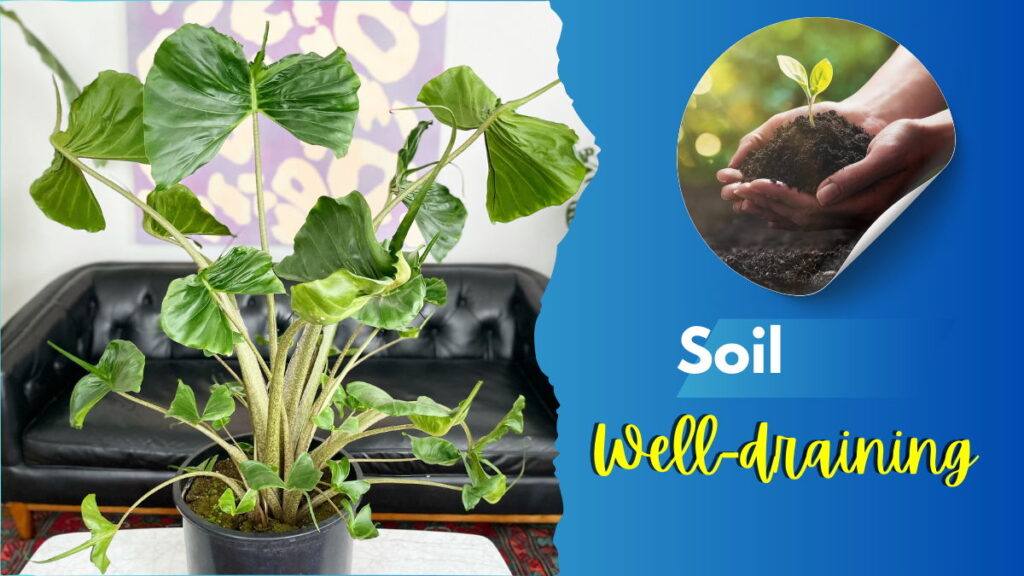
A potting mix that provides drainage to the plant. A good option is a mixture of potting soil, perlite, and orchid mulch to maintain proper air and moisture to maintain soil propensity for better development of Stingray.
Watering and Feeding
Water Schedule
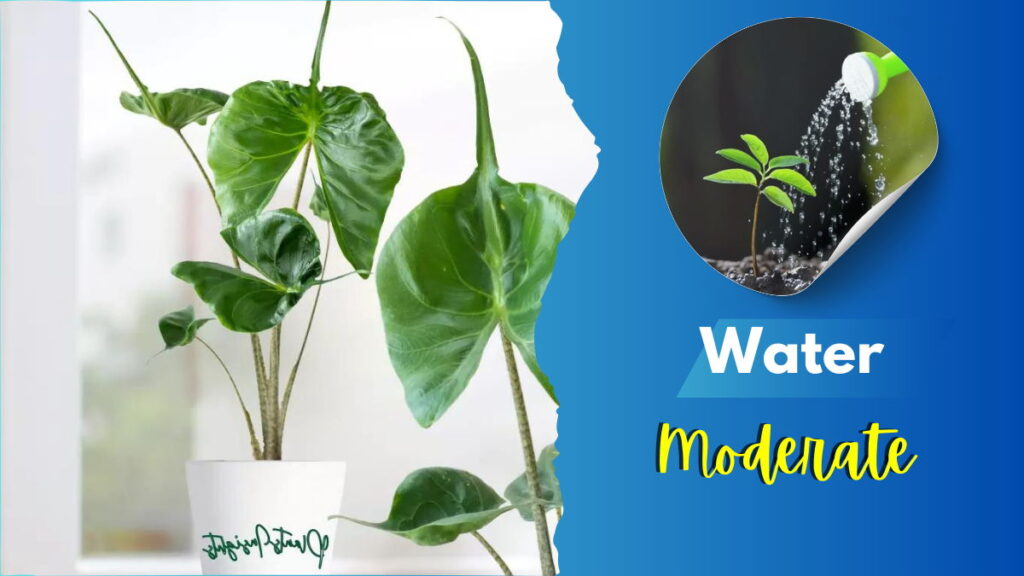
When the upper top soil is dry, water your Stingray Alocasia to prevent leakage. Change the frequency of water depending on changes in the season and weather (less water in winter).
Fertilization
Apply a proper liquid fertilizer through your Stingray Plant once a month during the growing season (spring and summer). Store charcoal when it is dormant (fall and winter).
Pruning & Maintenance
Pruning Methods
To maintain appearance, remove any yellowed or damaged leaves of the plant. To know the steps for pruning follow the previous post Philodendron Gloriosum.
Common parasites and diseases
Mealybugs and fungus worms are common hazards. Please treat them with neem oil or insecticidal soap. Drinking too much water can cause fungal infections. If necessary, treat them with a fungicide.
Repotting and Propagation
When and how to Repot?
Reset your Stingray every 1-2 years when it outgrows the current pot or the roots are full. Choose a pot with slightly larger drainage holes than the previous one.
Propagation Techniques
- Grading: Divide mature, multirooted Stingray alocasia during repotting. Make sure each side has enough stems and leaves.
- Rhizome cuttings: Use a bud eye to cut healthy rhizomes and plant in a well-drained pot mix.
Styling and Display Ideas
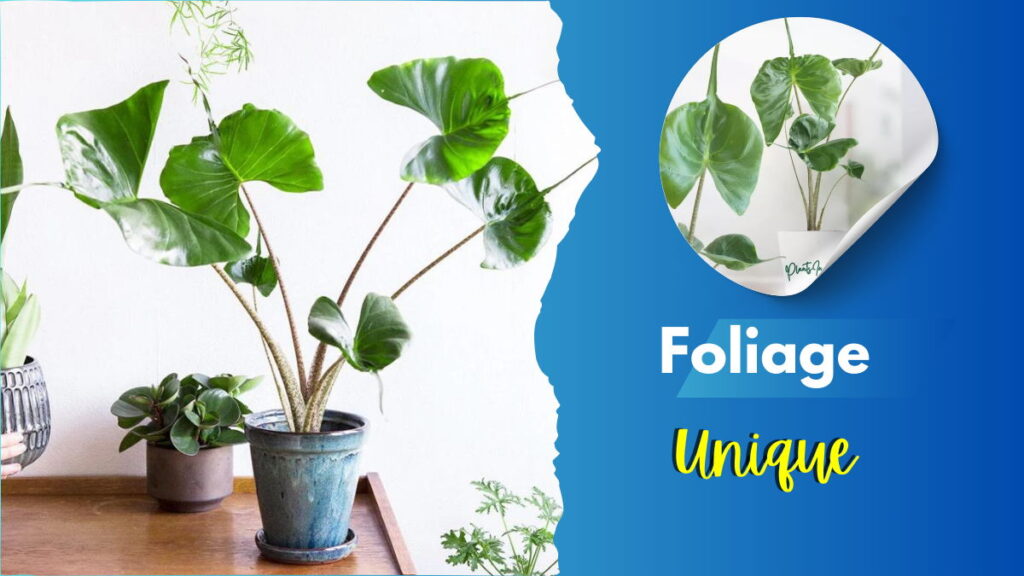
Interior Decor Inspiration
Display your Alocasia Stingray as a lovely centerpiece or elevate the bookshelf with its unique foliage.
Companion Plants
Pair your Alocasia Stingray with plants like ferns or prayer plants that have the same water and light needs.
Advantages of Growing Alocasia Stingray
In addition to its aesthetic appeal, the Alocasia Stingray boasts cleaner air, removing common toxins from your interior environment like other plants like Philodendron Moonlight.
Conclusions
This guide gives you the knowledge to build a thriving Alocasia Stingray with its striking foliage and air-purifying benefits, this plant is a valuable addition to any indoor space.
Where will you buy it?
Alocasia Stingray can be found in online purchases or specialty plant stores.
Are alocasia stingrays rare?
Stingray Plant is not as readily available as some other Alocasia species, but it is not entirely uncommon.
Why is it so hard to keep Alocasia alive?
Poor hydration (too much water) and insufficient water are the most common causes of alocasia.
How big is the Alocasia stingray?
The stingray alocasia typically reaches a mature length of 1-2 feet (30-60 cm).

